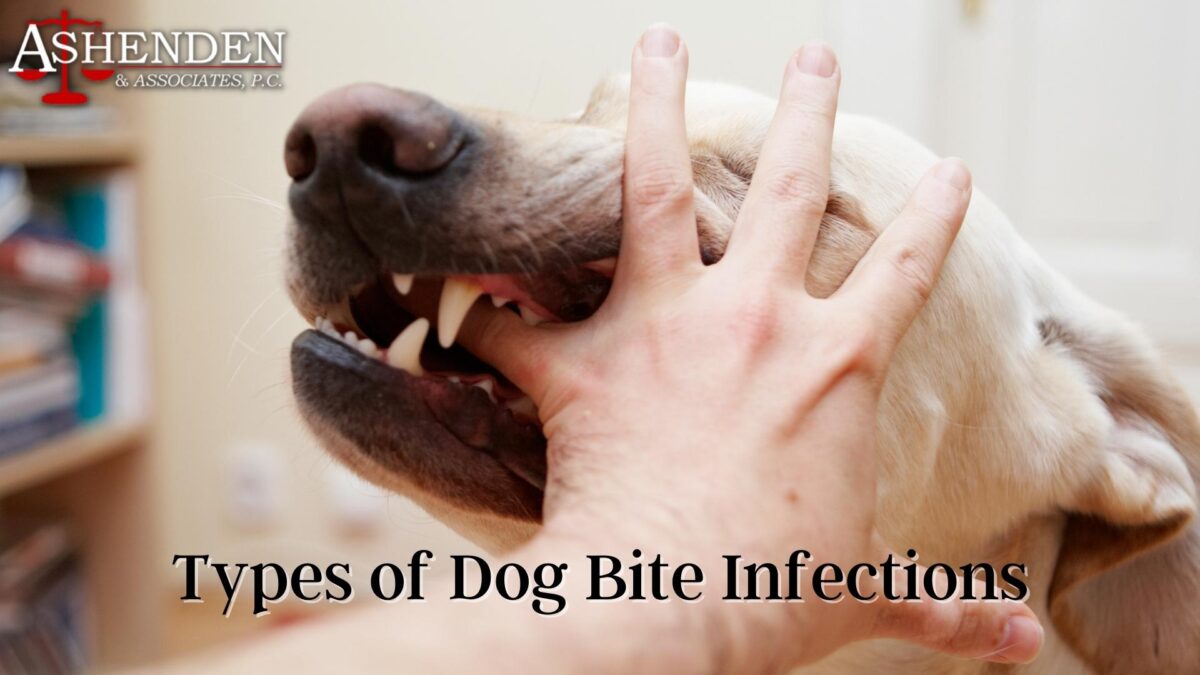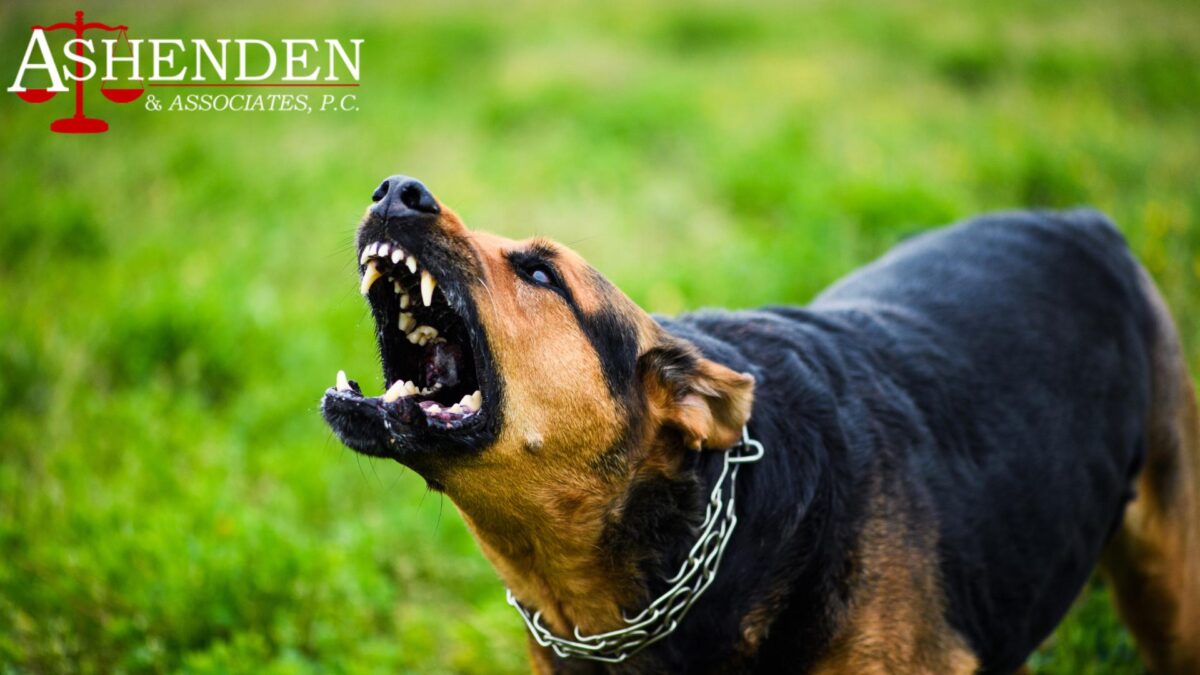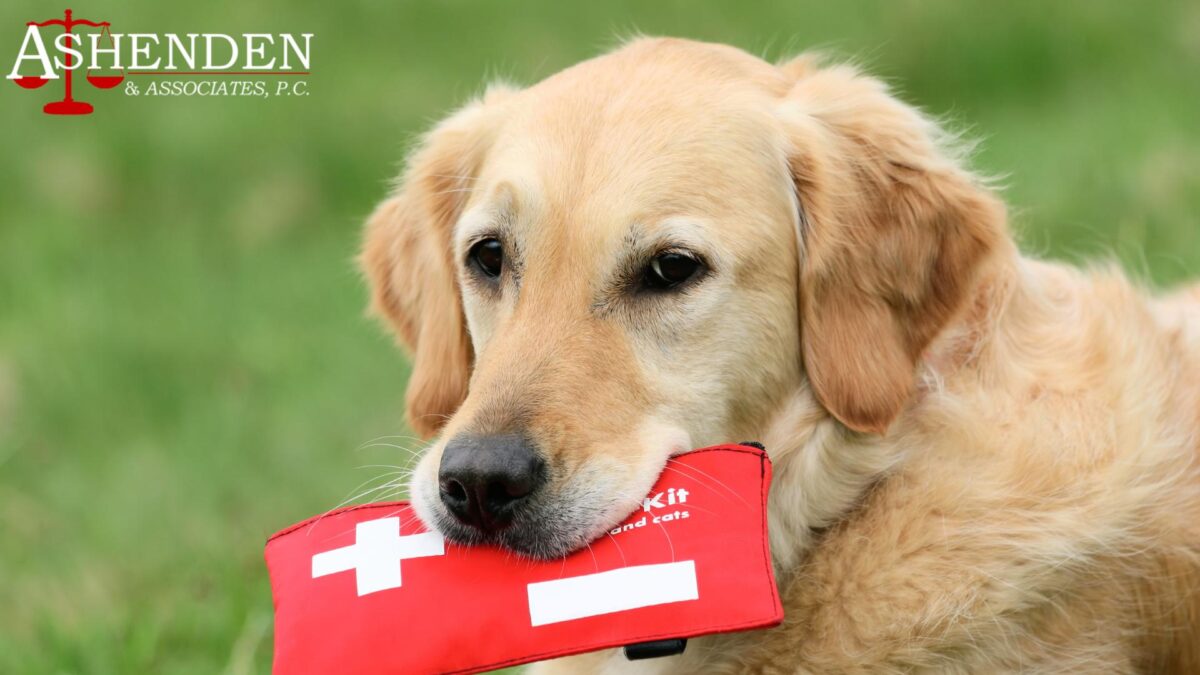Not only can animal bites cause lifelong scarring, disfigurement, and emotional trauma, but they can also lead to potentially life-threatening infections. While most animal bites don’t result in a serious infection, infections still occur, especially if the animal is a stray. Below, our Sandy Springs personal injury lawyers discuss dog bite infections: how often infection occurs, symptoms of infection, risk factors, treatment methods, and more.

If you have suffered physically, emotionally, or financially from an infected dog bite, you may have grounds to pursue financial compensation through a personal injury lawsuit. Call a Sandy Springs dog bite lawyer at 770-394-8909 to schedule a free consultation today.
Can a Dog Bite Wound Get Infected?
No matter the size, all dogs have the potential to bite. Dog bites can get infected, especially if you do not wash the wound afterward. When a dog bites a person, their teeth pierce the skin and can transfer bacteria from the animal’s mouth to the person. The bacteria can cause infections like tetanus, rabies, or sepsis.
If left untreated, the infection can become severe and even life-threatening. It’s essential to seek immediate medical attention when a dog has bitten you due to the risk of the wound getting infected. Most dog bites happen on the person’s hand or arm and carry a higher risk of infection. Even after medical treatment, it’s important to keep an eye on your bite wounds, especially if it is a deep wound or if the dog is a stray. You can still be at risk of infection. If the infection spreads to the rest of your body, you will need immediate medical treatment such as antibiotics or vaccinations.
How Common Are Infected Dog Bites?
In the United States, 4.5 million people are bitten by dogs yearly, and 10% to 15% of those bites get infected. According to the American Academy of Pediatrics, cat bites are more likely to become infected. In fact, up to 50% of cat bites get infected.

Symptoms of a Dog Bite Infection
Even if you have washed your dog bite, the wound is still at risk for infection. Some minor injuries may be treated at home, but it’s always best to see a doctor following any dog bite, big or small. If you notice redness, swelling, inflammation, or pain around the site of your dog bite, it’s important to notify your doctor immediately, especially if these symptoms remain after 24 hours. Other signs that can indicate that your wound has become infected are:
- Pus or fluid oozing from the wound
- Body aches, like muscle or joint pain
- Reds streaks around the bite, which indicates blood poisoning
- Tenderness or loss of sensation around the bite
- Fatigue
- Difficulty moving the body part that was bitten
- Nausea and/or vomiting
- Fever
- Chills/Shaking

Common Types of Dog Bite Infections
Listed below are the most common types of dog bite infections. Contact a Sandy Springs dog bite attorney at Ashenden & Associates today if you have been bitten and developed one of these infections.
Capnocytophaga
Capnocytophaga is a common type of bacteria found in dogs and cats. While it’s harmless for animals, it can lead to severe infection in people. A person does not have to be bitten by a dog or cat to be infected by capnocytophaga. An infected dog or cat can lick a pre-existing open wound and transfer the infection. According to the CDC, those infected with capnocytophaga may show signs between one to 14 days following being bitten.
Signs and symptoms of capnocytophaga to look out for are as follows:
- Blisters around the bite wound
- Redness, swelling, pus, and pain from the bite wound
- Fever
- Abdominal pain, nausea, vomiting, and diarrhea
- Headache
- Confusion
- Muscle and joint pain
If you think your dog bite wound has become infected with capnocytophaga, seek medical treatment immediately. This infection can have severe complications and lead to heart attack, kidney failure, and gangrene. Some of the more severe infections can even lead to amputation of the infected limb.
Rabies
A rabies infection is deadly if left untreated. Once infected, the virus travels through the central nervous system and into the brain. Very few dog bites lead to rabies infection, but it can still happen. Between one to three cases of rabies are reported annually in the United States. Symptoms of rabies can be similar to the flu and may last a few days. You may also notice discomfort or pain around the bite. If you know that the dog that bit you was rabid or had rabies, it’s best to seek medical attention immediately. Your doctor will administer the rabies vaccine on the date of the bite and then on days 3, 7, and 14 after the animal bite in order to save your life.
Tetanus
Tetanus is also referred to as “lockjaw” because tightening of the jaw muscles is one of the most common symptoms of the infection. In addition to lockjaw, a person infected with tetanus may also experience difficulty breathing and swallowing. Someone may contract a tetanus infection through an open wound contaminated with feces, saliva, or dirt. The most common causes of tetanus are getting bitten by a dog or stepping on a nail. If infected with tetanus, your doctor will administer a tetanus shot.
Common signs and symptoms of tetanus are:
- Jaw cramping and pain
- Muscle spasms in the stomach
- Muscle stiffness throughout the body
- Seizures
- Headaches
- Fever and sweating
- Fluctuations in blood pressure and heart rate
Cellulitis
The main bacteria in cellulitis is staphylococcus or staph, which is a common infection caused by dog bites. Symptoms of cellulitis are redness, swelling, pain around the bite, and pus or fluid oozing from the wound. Most doctors can diagnose a cellulitis infection by just looking at the wound. Blood tests are usually not needed in this case. Your doctor will most likely prescribe oral antibiotics.
Pasteurella
Pasteurella is a common bacteria that is found in the mouths of dogs and cats. It is the most common soft tissue infection related to dog and cat bites. Signs of a pasteurella infection are redness, pain, swelling, and pus/fluid drainage. If you suspect your dog bite has led to a pasteurella infection, your doctor will administer a penicillin injection.
Sepsis
Any infection can lead to sepsis when you do not seek immediate medical help. Sepsis is considered a medical emergency and can lead to tissue damage, organ failure, and even death. The elderly, immunocompromised, sepsis survivors, and the chronically ill are at an increased risk of developing sepsis after a dog bite.

How to Prevent Dog Bite Infections
Often dog bites will not result in an infection if they are cleaned thoroughly and medical treatment is immediately administered. Even if the bite is minor, it’s always recommended to visit your doctor for treatment.
To avoid an infection after being bitten, perform the following steps:
- Wash the wound thoroughly with warm soap and water
- Apply antibiotic cream and wrap the wound with a sterile bandage
Can You Sue for a Dog Bite Infection in Georgia?
You are eligible to sue a dog owner in Georgia if their dog has attacked you and the wound has become infected under Georgia dog bite laws. The Georgia Responsible Dog Ownership Law holds dog owners responsible if they know their animal is at risk of biting or attacking someone. You may be able to recover financial compensation if you suffered injuries from a dog bite and did not provoke the animal under Georgia dog laws.
Dog Bite Damages
One of our dog bite attorneys will help you recover compensation for the following damages:
- Past and future medical expenses
- Lost income
- Emotional distress
- Pain and suffering
- Permanent scarring and disfigurement
- Funeral and burial expenses if the bite infection led to a wrongful death

Call a Sandy Springs Dog Bite Lawyer at Ashenden & Associates Today
Victims of infected bites have grounds to sue, especially if they have suffered physically, emotionally, and financially following a dog attack. The legal team at Ashenden & Associates in Sandy Springs are experienced dog bite attorneys and will work with you to build a strong case. Anyone that has suffered from a dog bite is entitled to proper compensation. For a free consultation, contact us online or call 770-394-8909 today.
